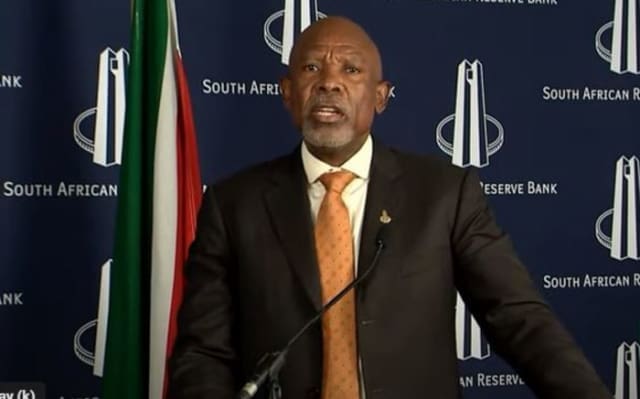The South African Reserve Bank (SARB) has reduced its benchmark interest rate by 25 basis points, effective 30 May 2025, citing subdued inflation and global economic risks.
The Monetary Policy Committee (MPC) voted 5-1 in favour of the cut, with one member advocating for a deeper 50bps reduction.
Governor Lesetja Kganyago stated, “Given lower inflation and persistent global uncertainties, we see scope for modest monetary easing to support growth while maintaining price stability.”
Global Economic Volatility Weighs on Growth
Since the last MPC meeting, global markets have faced turbulence due to shifting US trade policies, fluctuating asset prices, and weaker growth projections. While the US Federal Reserve held rates steady, central banks like the Bank of England and European Central Bank have cut rates, reflecting a dovish shift.
SARB revised its global growth outlook downward, citing trade barriers and supply-chain disruptions. However, lower oil prices and China’s excess capacity may help contain inflation worldwide.
South Africa’s Economic Outlook
First-quarter GDP data remains pending, but early indicators for mining and manufacturing signal sluggish activity, alongside rising unemployment. SARB now forecasts 2025 growth at 1.2%, improving to 1.8% by 2027. Structural reforms offer hope, but global headwinds persist.
Inflation dipped below 3% in April, driven by cheaper fuel and stable core inflation (3%). The bank lowered its 2025 inflation forecast, aided by a stronger rand and canceled VAT hikes.
Rand Stability and Policy Scenarios
The rand recently hit multi-year lows before recovering. SARB explored two key scenarios:
-
Adverse Scenario – A global slowdown triggering rand depreciation and stagflation risks.
-
3% Inflation Target – Aligning with the lower end of SARB’s range, which could enable deeper rate cuts (to under 6%) and stabilize expectations by 2026.
Governor Kganyago emphasized, “A 3% target could secure low inflation sustainably, but reforms in public debt, infrastructure, and wage growth are equally critical.”
The Path Ahead
While easing policy, SARB urged accelerated reforms to bolster growth, including debt reduction, infrastructure investment, and productivity-aligned wage increases. The next MPC meeting will further assess shifting inflation targets and global risks.
